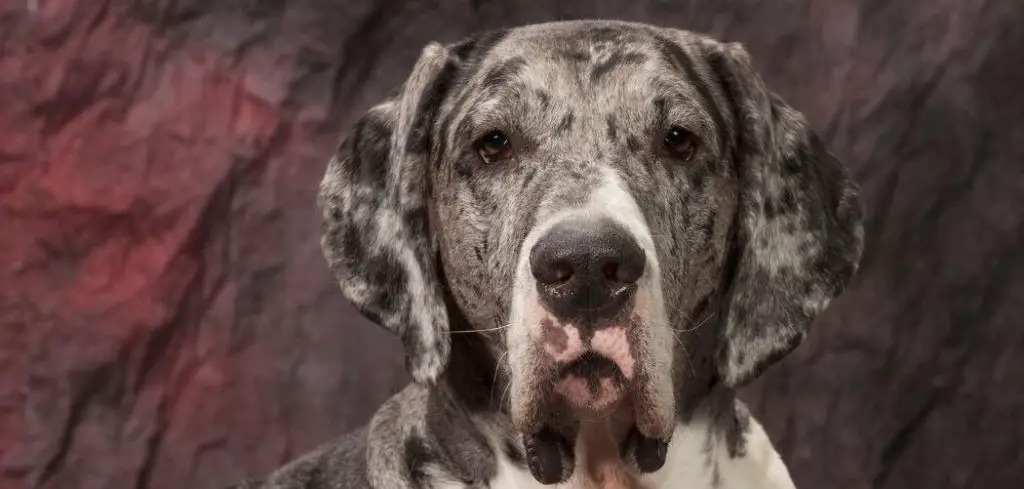If your old dog is suddenly panting and behaving strangely, it can be a worrying sight.
Older dogs are more prone to age-related conditions, and unusual behavior combined with heavy breathing often signals that something is wrong.
We outline the common causes of an old dog panting and acting weird, what you can do at home, and when to seek veterinary help.
Table of Contents
Old Dog Panting and Acting Weird — Why It Happens
When an elderly dog pants excessively and acts out of character, it’s often a sign of physical discomfort, neurological changes, or emotional stress. Common culprits include cognitive decline (dog dementia), pain, anxiety, heart or lung disease, or reactions to medication.
Senior dogs may also be more sensitive to environmental changes and internal health issues that show up subtly through changes in breathing and behavior.

Common Causes of Old Dog Panting and Acting Weird
Canine Cognitive Dysfunction (Dog Dementia)
Aging dogs can suffer from cognitive dysfunction, similar to Alzheimer’s in humans.
Signs include disorientation, aimless wandering, panting for no clear reason, pacing at night, or staring at walls. They may seem anxious or forget daily routines.
Panting may increase as your dog becomes confused or stressed. While there’s no cure, supplements and medications may help manage symptoms. Talk to your vet about options.
Related: Dog panting excessively (Causes and What To Do)
Pain or Discomfort
Older dogs are more prone to arthritis, spinal issues, or internal problems like pancreatitis or urinary tract infections.
They might pant more due to pain and exhibit odd behaviors such as hiding, refusing to lie down, or licking excessively.
If your dog is also reluctant to move, whining, or guarding part of their body, schedule a veterinary exam to identify the source of pain.
Anxiety or Restlessness
Older dogs may become more anxious, especially if their senses are declining. Changes in their environment or routine can be especially unsettling.
They may pant, pace, cling to you, or seem jumpy over minor triggers. Nighttime anxiety is particularly common in senior dogs.
Behavioral supplements, pheromone diffusers, or anti-anxiety medications can sometimes ease these symptoms.
Heart Disease
Heart problems are common in aging dogs and can lead to breathing changes, weakness, and behavioral shifts.
Panting, coughing, restlessness, and lethargy may indicate that the heart isn’t pumping efficiently. Your dog may act distressed or uncomfortable lying down.
Veterinary evaluation, including a chest x-ray or echocardiogram, is necessary to assess heart function.
Respiratory Conditions
Diseases such as chronic bronchitis, laryngeal paralysis, or collapsing trachea may cause increased panting in older dogs.
You might notice wheezing, gagging, or open-mouth breathing. Some dogs become anxious because they feel they can’t get enough air.
Early diagnosis and treatment can improve comfort and breathing quality.
Medication Side Effects
Certain drugs—like steroids, thyroid medications, or pain relievers—can cause panting or behavioral changes.
If your dog recently started a new medication and is now panting excessively or acting odd, consult your vet. Dosage adjustments or alternatives may help.
Heat or Environmental Stress
Senior dogs are less efficient at regulating body temperature. Even mild heat can cause them to pant heavily and act distressed.
If your dog is panting and restless in a warm room, move them to a cooler, quiet space. Always ensure fresh water is available.
Low Blood Sugar or Electrolyte Imbalance
Underlying conditions such as diabetes, Addison’s disease, or kidney disease can affect energy levels and behavior.
Panting, tremors, confusion, or collapse may occur when blood sugar or electrolyte levels are off.
Blood tests can help your vet pinpoint these issues and start appropriate treatment.
What to Do If Your Old Dog Is Panting and Acting Weird
First, assess your dog’s environment and recent changes. Is it too warm? Have they started a new medication or diet? Are they showing signs of pain or confusion?
Provide a calm, cool space and remove any stressful triggers. Avoid scolding your dog, as fear can worsen panting and strange behavior.
Feel your dog’s body gently—check for heat, swelling, or painful areas. Take note of any other symptoms like vomiting, coughing, or disorientation.
If this behavior happens repeatedly, seems to worsen, or lasts more than a few hours, contact your veterinarian for an evaluation.
When to Call or Visit Your Vet
You should seek veterinary help immediately if your old dog is:
Panting excessively with pale or blue gums
Disoriented, collapsing, or showing signs of distress
Showing signs of pain (whining, flinching, guarding a body part)
Vomiting, coughing, or having seizures
These can be signs of heart failure, neurological issues, or acute pain that require immediate care.
Even if the symptoms are mild, it’s a good idea to document them and share them with your vet during your next visit.
Read more: Old Dog Panting and Not Eating (What it could mean)
Key Takeaway
If your senior dog is panting and acting weird, it could be a sign of pain, anxiety, cognitive decline, or a medical condition.
Monitor their symptoms closely and consult your vet—especially if your dog’s behavior seems to worsen or happens frequently.
With the right care, many older dogs can continue to live comfortably and safely well into their golden years.
